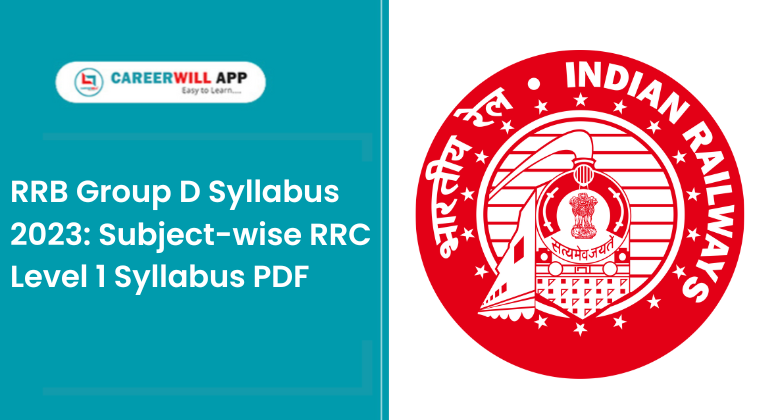Complete Guide to RRB Group D Exam Syllabus
Complete Guide to RRB Group D Exam Syllabus
Blog Article

The Railway Recruitment Board (RRB) Group D exam is an essential recruitment process for filling various posts in Indian Railways. Candidates aspiring to join the Indian Railways in various technical and non-technical roles must clear the RRB Group D exam, which tests the candidate’s knowledge, reasoning ability,RRB Group D Syllabus and general awareness. The syllabus for this exam is designed to assess the candidate’s overall aptitude and understanding in multiple areas. Let’s break down the RRB Group D syllabus to help you understand what you need to study.
1. General Science
The General Science section in the RRB Group D exam is one of the most crucial topics. It evaluates your basic understanding of science, primarily in Physics, Chemistry, and Biology. The questions in this section are designed to assess your knowledge of scientific principles and their applications. It generally covers:
Physics: Simple concepts of force, motion, energy, and matter.
Chemistry: Basic concepts of chemical reactions, acids, bases, and general chemistry.
Biology: Topics like human body systems, plant biology, health, and hygiene.
A thorough understanding of these basic science concepts will help you tackle the General Science questions effectively.
2. Mathematics
The Mathematics section tests your numerical and problem-solving skills. It typically includes:
Arithmetic: Simple calculations, percentage, ratios and proportions, profit and loss, time and work, time and distance.
Algebra: Basic algebraic expressions, equations, and identities.
Geometry and Mensuration: Perimeter, area, volume, angles, circles, and triangles.
Trigonometry: Basic trigonometric ratios and their applications.
The key to excelling in this section is practicing numerical problems regularly to improve speed and accuracy.
3. General Intelligence and Reasoning
This section is designed to evaluate your logical thinking, pattern recognition, and problem-solving abilities. Topics in this section include:
Analogies: Identifying relationships between different elements.
Series Completion: Recognizing patterns in number or letter sequences.
Coding and Decoding: Understanding the logical pattern in encoded language.
Classification: Identifying the odd one out from a set of options.
Puzzles: Solving logic puzzles involving numbers, words, or shapes.
Practicing reasoning problems will help enhance your logical abilities and improve your performance in this section.
4. General Awareness
The General Awareness section tests your knowledge of current affairs and general knowledge related to India and the world. Key topics include:
Current Affairs: Latest news on national and international events, sports, politics, economy, and technology.
Indian History: Important events, historical figures, and movements.
Geography: Physical, political, and economic geography of India and the world.
Indian Economy: Basic concepts like the economic planning of India, the banking system, and national income.
Staying updated with daily news and referring to current affairs magazines or newspapers will help you score well in this section.
5. English/Hindi Language
This section is designed to assess your proficiency in the language chosen for the exam. You can choose either English or Hindi based on your preference. The key topics include:
Grammar: Sentence structure, tenses, subject-verb agreement, and parts of speech.
Vocabulary: Synonyms, antonyms, and meaning of commonly used words.
Reading Comprehension: Understanding and interpreting passages.
Sentence Completion: Filling in the blanks with appropriate words.
Improving your vocabulary and practicing reading comprehension regularly will help you score better in this section.
Conclusion
The RRB Group D exam syllabus is extensive and covers a wide range of topics. To excel in the exam, it’s crucial to have a well-structured study plan, practice regularly, and stay consistent with your preparation. Focusing on improving your speed, accuracy, and understanding of the various topics will give you a competitive edge. By following a disciplined approach and revising regularly, you can enhance your chances of securing a position in Indian Railways.
Report this page